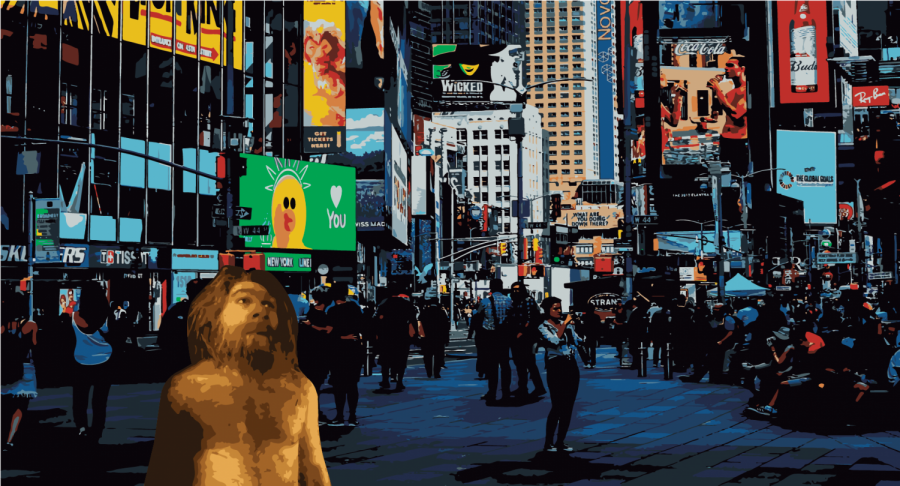Humanity’s mind did not evolve to fit modern world
Sep 19, 2019
Humans have come a long way since the days of hunting and gathering. Lying in bed in air-conditioned houses surely beats finding a cave to hide from predators in the open night. Better sanitation practices and vaccines allow friends and family to live long, meaningful lives.
It can be said confidently the state of humanity has objectively gotten better as technology has advanced due to humankind’s innovative tendencies.
While this is undoubtedly true, an aspect that often goes ignored is what happens to the human mental condition when evolutionary traits engage with a civil society that is entirely unnatural. From what can be observed, the modern civil society, and what is standard practice in terms of being meaningful or fulfilling, are leading to an increased number of lives being lived in isolation ridden with loneliness, anxiety and depression.
This may be because the human mind is at war with the world it is creating.
As many other animals do, primitive humans relied on tribal communities to survive. Our ancestors welcomed and embraced those who fit the mold of their individual tribes and lived in accordance to the lifestyle together. To be alone was to be dead.
Get The Daily Illini in your inbox!
As natural selection occurred, humans with communal traits survived while those who lived in isolation died out, failing to reproduce effectively and greatly lessening their impact on the genetic future of the species. It is why modern humans are still communal, why we gravitate toward groups we feel we belong to and why we have such harsh defense mechanisms for when we are unable to do so: anxiety and loneliness.
Since to be alone was to be dead to our ancestors, our brains evolved to create unpleasant mental conditions that would force us to find a community.
Humans operated in tightly knit communities for hundreds of thousands of years. Even up until the industrial revolution, people, for the most part, were confined to the community they were born in. They were most likely born and raised on a farm, or perhaps to a family of craftsmen, and provided food for themselves and their immediate “tribe.” They died on the same land they lived on and dealt with the physical trials and tribulations that lifestyle demanded as a community. They would interact with the same people of that community for their entire lives.
As the results of the industrial revolution started to manifest in the form of the modern work culture, people began to leave those communities for jobs all across the country or even the world. The emphasis switched from the community to the individual and the desire to always outpace or outwork each other.
Careers did not exist when our ancestors began to create civilization. The modern, almost religious idea that a career is what gives a person meaning is directly antithetical to what the natural human mind desires.
The tribal basis for which humans have evolved to survive has been disrupted, not through natural selection, but rather by our own creations. It further intensifies by being in an increasingly toxic and competitive culture, in which the bar is always being set higher to gain status or merit from accomplishments in the artificial world around us. What has been seen almost unanimously as beneficial for the artificial has been a contributor to what has been detrimental for the evolutionary.
The increasing usage of unnatural luxuries and biologically opposing social structures may be why suicide and depression rates are substantially higher in developed countries compared to less developed countries.
The number of single households in the U.S., U.K. and Japan have risen exponentially since the industrial revolution. The constant feeling of missing out, socially or professionally, through usage of social media is a concept human consciousness did not evolve to interpret. The mechanisms for generating wealth and status engraved into our culture have negated our social needs as a species — and no economic class is spared entirely.
This is not to disparage the countless benefits a modern society has to offer, but rather it paints the idea that what humans create going forward will have unintended consequences that need to be addressed.
It is frequently said there is an epidemic of loneliness and anxiety in the developed world, and it may only worsen in the years to come. It is then up to the people of the world to resolve it. The alternative may present a substantially bleaker outcome.
Austin is a senior in LAS.






